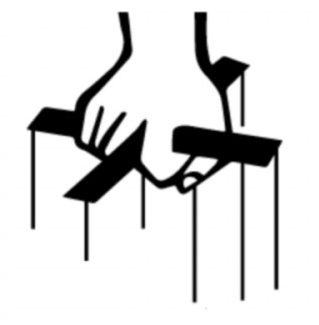Now Go and Get Your Money Lil Duffle Bag Boy
Monday January 23, 2017
My first big boy job was at TSYS back in September of 2011. I was still in school as a super senior, but also working practically full time on prepaid card systems. Back during the early prepaid card era, we saw some crazy things…unsurprising though given the amount of people who are “underbanked”, even in the 20 sq. mi radius of the office. As the world turned, I learned the plan of using KYC to create another layer of capital controls on top of prepaid cards. In the name of anti-terrorism of course. In 2013 I could no longer bring myself to care to contribute anything or even collect a paycheck from the company, so I quit.
Bitcoin’s old friend MoneyPak, was a brilliant mechanism for “laundering” cash into Bitcoin without having to meet anyone in person. But this has slowly been outlawed by the KYC process, reloading prepaid cards with MoneyPaks without identification is now a thing of the past.
Well, the onslaught of regulation created less private onramps for Bitcoin, and in fact spooked many legitimate traders who put client privacy above everything else. This has been reflected in LocalBitcoins increasing reported volume, and evident in MoneyPak de-anonymizing its products. I wouldn’t bet on being able to make an “anonymous” trade over IRC these days in a place like #bitcoin-otc, where you could once send a GPG-encrypted photo of an unredeemed MoneyPak and receive Bitcoin.
At a first glance it seems the KYC brigade is winning its battle over freedom, but recently I discovered a privacy advocate in the US that remains little-known in this service, despite its size. For anyone who has received a US Postal Service money order, you may not know its endorsed by the Federal Reserve – depositing one requires no hold time on the funds. Additionally, and just as important, the payee of the money order is hand written; all payee information is blank on a newly created money order. Although each money order is limited to $1,000, its funny how such a simple instrument can easily funnel less than reputable (“duffle bag”) cash through the traditional finance system.
These processes are relatively simple and there are more ways to utilize this tool than described below. This is a simple thought experiment in regards to asciilifeform’s “duffle bag of benjies”, or duffle bag boy problem, and not an endorsement of using such methods to facilitate the financial infrastructure of a criminal organization.
Rent Placement
Paying rent in cash usually never happens. It tends to be risky business for all involved: tenant and landlord. Well a postal money order made out to the landlord solves this problem, as it is essentially paying rent in cash.
After receiving a duffle bag full of cash, to pay rent one takes a portion of said cash to any number of post offices in the United States, and purchases as many maxed-out orders as needed to pay the month’s rent. The payer’s name can be a pseudonym, and using the rental property as an address, which increases privacy in the matter if needed. This depends on the leniency of the landlord.
Moneypak Substitute
Previously in Bitcoin’s history, one was able to purchase a MoneyPak with cash from a number of stores, take a picture of the code and the receipt of purchase, and send it to the Bitcoin seller. The seller could then take the MoneyPak and redeem it for cash in a multitude of ways (usually by reloading a prepaid card and pulling cash out of an ATM). Now with GreenDot’s rigorous ID check, this is now impossible to do privately. However a postal money order can be used in a similar fashion. A money order can be deposited into many bank accounts by way of photograph. With my own experiences, I’ve successfully received a money order via photograph and deposited into one of my checking accounts. In these instances, although the payee is not private, the payer can remain private by not filling out the “sender’s address” on the money order.
It’s ironic a federal financial instrument serves as a last bastion of moving cash privately between physical scrip and the various network of so-called banks, despite the fact federal regulation have been so prohibitive in the transfer of cash. Bank regulation may change, requiring one to fill out the complete money order, before it can be deposited into an account. Perhaps post offices will print the payee and payer information on the money order during its creation, just like that amount. Until then, go and get your money lil’ duffle bag boy.
Published under Altcoins, Shitware, Trapstar | Leave a Comment
